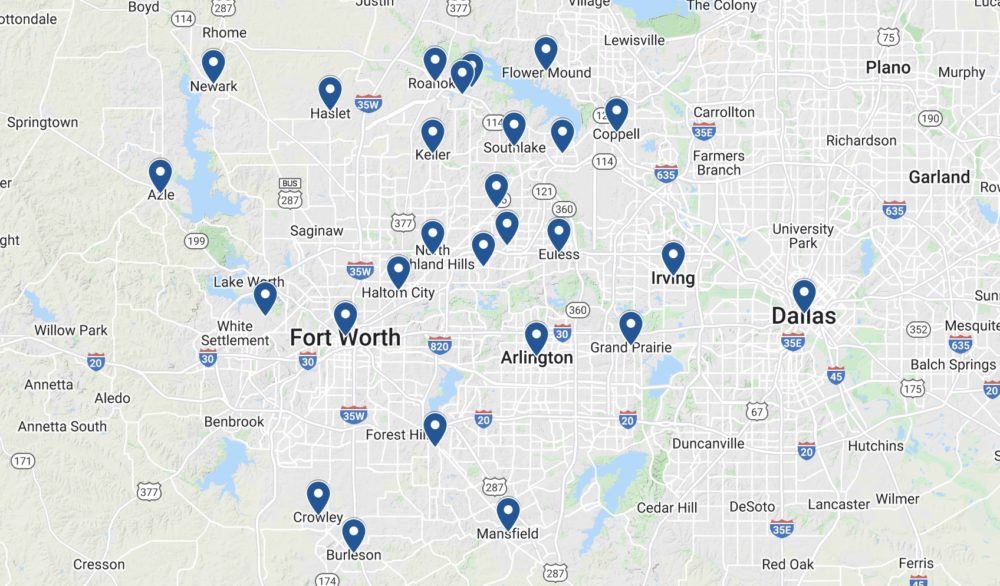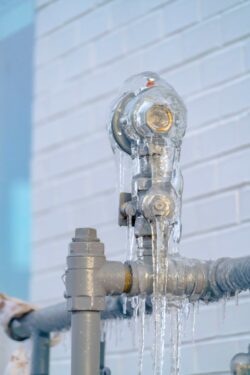Protecting Your Loved Ones: The safety and well-being of your family are paramount. Freezing weather can pose various risks, from frostbite to hypothermia, especially for vulnerable individuals like children and the elderly. Being prepared ensures that your family members have the necessary resources and knowledge to stay warm and safe during cold snaps. It provides peace of mind, knowing that you can protect your loved ones from weather-related dangers.
Preventing Property Damage: Freezing weather can wreak havoc on your home. Frozen pipes, burst water lines, and damaged roofs are just a few of the potential consequences. Being prepared means taking proactive steps to winterize your property, such as insulating pipes, sealing gaps, and trimming overhanging branches. These measures not only protect your home but also save you from costly repairs and insurance claims.
Maintaining Comfort and Convenience: Freezing weather can disrupt essential services like heating, electricity, and water supply. Having an emergency plan in place ensures that your family can maintain comfort and convenience even when facing power outages or heating system failures. Stocking up on non-perishable food, bottled water, and alternative heating sources can make the difference between a challenging ordeal and a manageable situation.
Avoiding Stress and Panic: Sudden weather emergencies can lead to stress and panic, especially if you are unprepared. Having a well-thought-out plan and essential supplies on hand can help you stay calm and collected during freezing weather events. It allows you to focus on executing your preparedness measures rather than scrambling to gather resources in the midst of a crisis.
Community Resilience: Being prepared for freezing weather extends beyond your household. It contributes to community resilience by reducing the burden on emergency services and resources. When families are self-sufficient during weather-related emergencies, it allows first responders to allocate their efforts where they are needed most. Your preparedness efforts can indirectly benefit your entire community by promoting self-reliance and efficient response to adverse weather conditions.
In summary, being prepared for freezing weather is not just about personal comfort; it’s about safeguarding your family’s safety, protecting your property, and contributing to the resilience of your community. By taking proactive measures and having a well-established plan in place, you can face winter weather challenges with confidence and ensure the well-being of your loved ones.
Preparing Your Home
- Insulate Pipes: Insulate exposed water pipes, especially those in unheated areas like attics, basements, and crawl spaces. This helps prevent freezing and bursting.
- Drip Faucets: When temperatures drop significantly, allow faucets to drip slowly. A continuous flow of water can prevent pipes from freezing.
- Seal Drafts: Seal any gaps, cracks, or drafts around windows and doors using weatherstripping and caulk. This helps keep warm air in and cold air out.
- Insulate Windows: Consider using thermal or insulated curtains on windows to reduce heat loss.
- Add Insulation: If possible, add extra insulation to your home’s walls and attic to improve overall insulation.
- Heating System: Have your heating system serviced before winter to ensure it’s in good working order. Replace air filters regularly.
- Emergency Heat Source: Consider having an emergency heat source, such as a portable space heater, kerosene heater, or wood-burning stove, with proper ventilation in case of power outages.
- Fireplace Safety: If you have a fireplace, ensure it’s clean and properly maintained. Use a fireplace screen to prevent sparks from escaping.
- Clear Gutters: Remove leaves and debris from gutters to prevent ice dams, which can cause roof leaks.
- Roof Inspection: Inspect your roof for any damaged or missing shingles and make necessary repairs.
- Backup Power: If you have a backup generator, ensure it’s in good working condition and have enough fuel on hand.
- Emergency Kit: Create an emergency kit with essentials like bottled water, non-perishable food, flashlights, batteries, a first-aid kit, blankets, and a battery-powered radio.
- Outdoor Faucets: Disconnect and drain garden hoses, and shut off the outdoor water supply. Cover outdoor faucets with insulated covers to prevent freezing.
- Seal Attic and Crawl Spaces: Properly seal and insulate your attic and crawl spaces to prevent drafts and heat loss. This also helps protect your home from cold air infiltration.
- Furnace Inspection: Schedule a professional inspection of your furnace to ensure it’s operating efficiently and safely. Clean or replace the furnace filter.
- Carbon Monoxide Detectors: Test and replace batteries in carbon monoxide detectors to ensure they’re in working condition, especially when heating systems are in use.
- Thermostat Programming: Program your thermostat to maintain a consistent temperature during the day and slightly lower at night. This reduces energy consumption.
- Emergency Exit Planning: Create an emergency exit plan for your family in case of power outages or other emergencies. Ensure everyone knows how to safely exit the home.
Protecting Home Pipes
- Insulate Pipes: Wrap exposed water pipes, especially those in unheated areas like the attic, basement, or crawl spaces, with insulation sleeves or heat tape. This helps prevent them from freezing.
- Seal Cracks and Gaps: Seal any cracks or gaps in your home’s exterior walls, foundation, and around windows and doors. This prevents cold drafts from reaching pipes.
- Keep Cabinets Open: During cold nights, open cabinet doors under sinks to allow warm air to circulate around pipes. This is particularly important for pipes located along exterior walls.
- Drip Faucets: On extremely cold nights, let faucets drip slowly to keep water moving through the pipes. This continuous flow can help prevent freezing.
- Disconnect Garden Hoses: Disconnect and drain outdoor hoses. Shut off outdoor water faucets and insulate them with faucet covers.
- Drain Irrigation Systems: If you have an irrigation system, drain it to prevent water from freezing inside the pipes.
- Locate the Main Shutoff Valve: Familiarize yourself with the location of the main water shutoff valve in your home. In case of a burst pipe, you can quickly turn off the water supply.
Family Preparation
- Emergency Kit: Create an emergency kit for your family that includes essential supplies such as non-perishable food, bottled water, blankets, flashlights, batteries, a first aid kit, and any necessary medications.
- Emergency Communication: Ensure everyone in the family knows how to contact each other in case of power outages or emergencies. Set up a communication plan.
- Stay Informed: Stay updated on weather forecasts and warnings. Make sure you have a battery-powered weather radio to receive alerts.
- Heating Source: If you have an alternative heating source (e.g., a fireplace or wood-burning stove), ensure it’s in good working condition and stock up on firewood.
- Backup Power: Consider a backup power source like a generator or portable power bank to keep essential devices charged.
- Winter Clothing: Ensure everyone has warm winter clothing, including hats, gloves, scarves, and heavy coats. Layer clothing for extra warmth.
- Vehicle Preparedness: Prepare your vehicles for winter by checking tire tread, antifreeze levels, and having an emergency kit in the car.
- Emergency Contacts: Make a list of emergency contacts, including local utilities, doctors, and neighbors who can assist in case of an emergency.
- Stay Inside: During severe cold spells, limit outdoor exposure, especially for children and the elderly.
- Food and Water: Stock up on non-perishable food items and bottled water in case of power outages or impassable roads.
- Check on Neighbors: Look out for your neighbors, particularly those who may need extra assistance during cold weather.
By taking these steps, you can protect your home’s pipes from freezing and ensure your family is well-prepared to handle freezing weather conditions and any emergencies that may arise. Preparedness is key to staying safe and comfortable during winter weather events.
Do you want to learn how to keep our vehicles good during the freezing weather?
Follow this link:
Preparing Your Vehicles for cold weather
Areas We Serve













